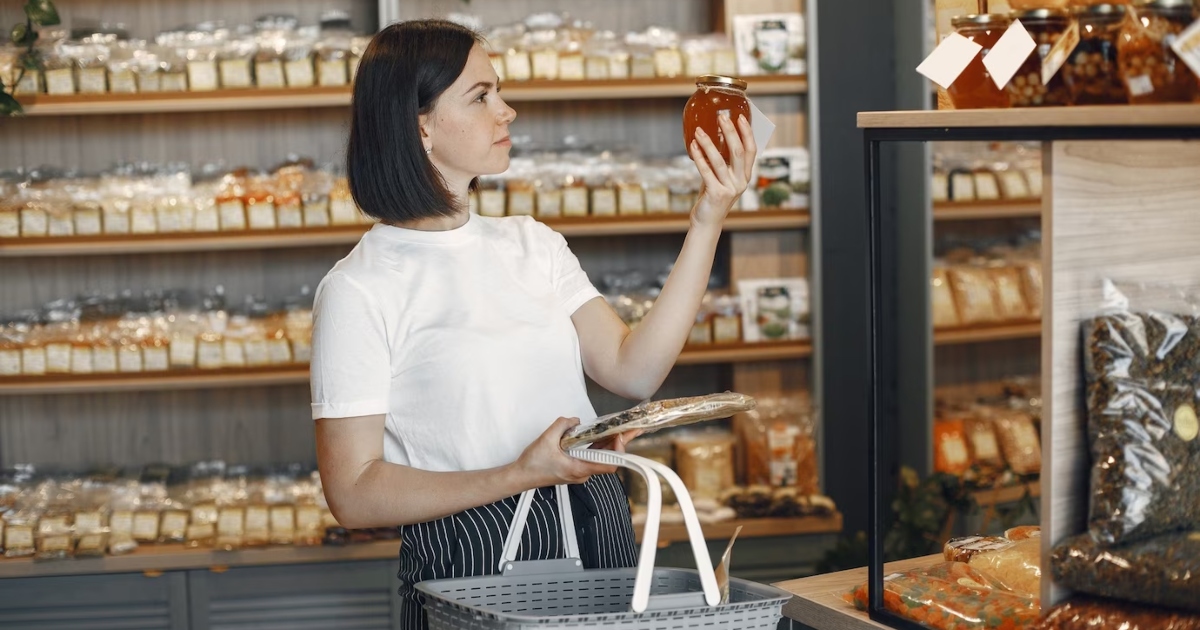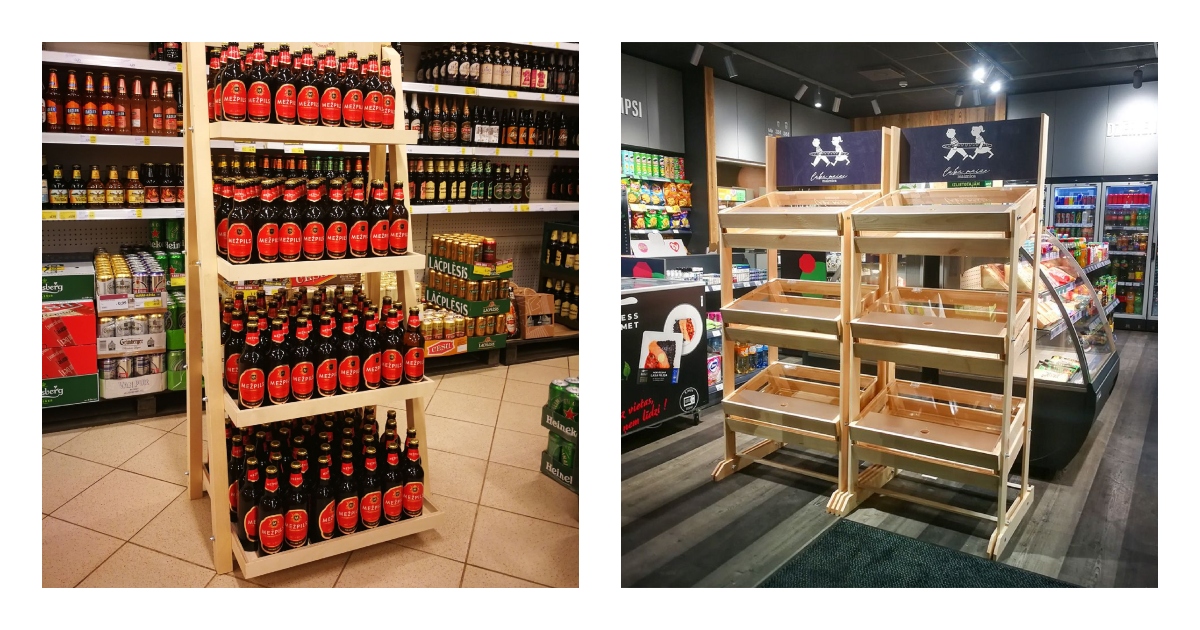
Welcome to another blog post where we bring you the latest in retail solutions and marketing fixtures. Sustainability is more than just a buzzword because it’s also a necessity for the modern retail industry.
Today, we delve into an essential, yet often overlooked area – product shelving. In this article we will explore how supermarkets can adopt the principles of the circular economy to make more eco-friendly choices, especially when it comes to product shelving.
The life span of shelving solutions
Before diving into sustainable solutions, it’s crucial to understand the longevity of traditional shelving materials. This will allow you to make an informed decision about what type of shelving suits both your needs and your sustainable objectives.
A typical cardboard stand, ranging in price between 30 – 40 EUR, is designed for short-term use and may last a maximum of 2-3 months. In contrast, a well-maintained wooden stand can last between 3-5 years, or even up to a decade.
The material you choose should align with your long-term plans. Whether that be a temporary pop-up store or a long-standing supermarket.
Reuse and refurbishment
The principle of reuse is a cornerstone of the circular economy. By reusing or refurbishing shelving systems, supermarkets can significantly reduce waste and lower their carbon footprint.
Consider partnering with suppliers who offer refurbishment services. Old shelves can be sanded down, reinforced, and refinished to look brand new. By adopting a program that refurbishes shelving, you not only save money in the long run but also contribute to reducing waste.
Designing for durability
Designing product shelving solutions that are durable, resilient, and long-lasting plays a significant role in a circular economy model.
So we suggest you work with manufacturers who prioritize high-quality materials and craftsmanship. The aim should be to invest in shelving that withstands the test of time and consumer demands.
Look for materials that are both sturdy and environmentally friendly, such as sustainably sourced wood or recycled metal. By focusing on durability, you’re taking a step toward long-term sustainability.
Take-back programs to consider
Recycling isn’t just for your home – it can also be a part of your retail business. Implementing a take-back program for old product shelving can create a sustainable loop within the lifecycle of your fixtures.
Collaborate with suppliers willing to take back old shelving units for recycling or refurbishment. This can involve dismantling the units into their base materials for recycling or upgrading them for resale.
Either way, the aim is to minimize waste and promote responsible consumption.
Digital technology in product shelving
While this may not seem directly related to the circular economy, the advent of digital technology in retail shelving offers additional layers of sustainability.
Think digital price tags that can be updated wirelessly, thereby saving on paper waste. Or consider smart shelves equipped with sensors that can alert you when a product is out of stock. That way enabling better inventory management and reducing the need for excess stock and potential waste.

ColorWoodLatvia – sustainable shelving solutions
As the retail industry moves toward embracing sustainability, it’s crucial to highlight companies that are leading the charge in offering eco-friendly solutions. One such company is ColorWoodLatvia.lv – a wood manufacturer focusing on sustainable manufacturing.
ColorWoodLatvia.lv takes a multi-faceted approach to sustainability that aligns perfectly with the principles of the circular economy.
Here’s how:
- Reclaimed materials – one of the standout features of ColorWoodLatvia.lv is their use of reclaimed wood in their product shelving solutions. Not only does this give a second life to materials that would otherwise be discarded, but it also adds a unique aesthetic value to each piece.
- Eco-friendly paints – when it comes to finishing their products, ColorWoodLatvia.lv opts for eco-friendly paints that are devoid of harmful chemicals. This approach is not only better for the planet but also safer for consumers and retail employees.
- Lean production – ColorWoodLatvia.lv employs lean manufacturing techniques to ensure that waste is minimized at every stage of the production process. From efficient design plans to the precise cutting of materials, every step is optimized for minimal waste.
- Sustainable transportation – recognizing that sustainability doesn’t end at the manufacturing stage, ColorWoodLatvia.lv also focuses on eco-friendly transportation solutions. By optimizing load sizes and planning efficient routes, they aim to reduce their carbon footprint even further.
By combining these four elements – reclaimed materials, eco-friendly paints, lean production, and sustainable transportation – ColorWoodLatvia.lv offers a product that is both high-quality and ecologically responsible.
So, the next time you’re considering shelving solutions for your retail space, for example, floor display stands, give ColorWoodLatvia.lv a look. Not only will you be making a wise economic choice, but you’ll also be contributing to a more sustainable and ethical retail industry.
Your product shelving solutions
In conclusion the concept of a circular economy is increasingly relevant in today’s retail landscape. By integrating these principles into your product shelving solutions, you’re taking a vital step toward both sustainability and long-term cost-effectiveness.
And in an era where both consumers and businesses are becoming more eco-conscious, these efforts won’t go unnoticed.
Check out our other articles too, for example, one about Prioritizing Ergonomic Retail Shelving.
Thank you for joining us on this journey towards a more sustainable retail future.


